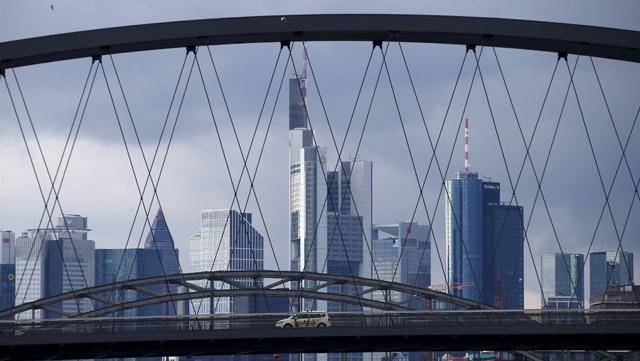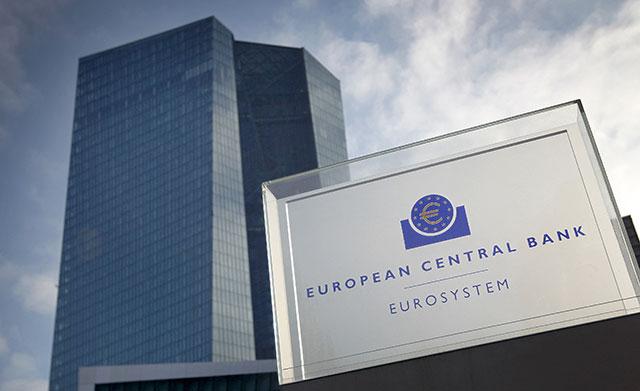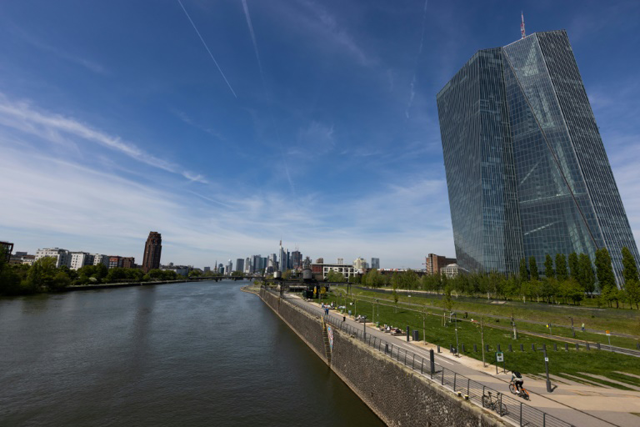You are here
German inflation plunges in March
By AFP - Mar 30,2017 - Last updated at Mar 30,2017

The Frankfurt skyline with the Commerzbank headquarters is photographed in Frankfurt, Germany (Reuters file photo)
FRANKFURT am MAIN — Inflation in Europe's largest economy Germany fell back sharply in March, preliminary official data showed on Thursday, after overshooting the target of the European Central Bank (ECB) the previous month.
Prices rose 1.6 per cent compared with March 2016, figures from federal statistics authority Destatis showed, a 0.6-percentage point decrease from February's figure and below analyst forecasts of 1.8 per cent.
Inflation reached 1.5 per cent as measured using the Harmonised Index of Consumer Prices — the ECB's preferred yardstick.
German economists and politicians had called on the central bank to raise interest rates after inflation jumped past its target of close to but below 2 per cent, believed to be most favourable for growth.
For their part, ECB policymakers argued they should continue their policies of low rates and cash injections into the economy, choosing to "look through" the spike in price growth.
Higher inflation across the 19-nation eurozone since December has been a temporary effect of higher energy prices this year compared with the first months of 2016, top central bank figures believe.
Meanwhile, core inflation — excluding volatile items like energy and food — remains sluggish.
"Today's German data and tomorrow's eurozone data should help the ECB in getting rid of rate hike expectations," said economist Carsten Brzeski of ING Diba bank.
Looking to individual elements in Germany's inflation basket, energy price growth slowed to 5.1 per cent from February's 7.2 per cent, while food inflation fell from 4.4 to 2.3 per cent.
Goods prices grew 2.5 per cent, down from February's 3.2, and services inflation reached 0.7 per cent after 1.3 per cent the previous month.
"We suspect that underlying price pressures will remain very subdued in future... there are still few signs of strong upward pressure on wage growth," analyst Jennifer McKeown of Capital Economics commented on regional inflation figures released earlier Thursday.
Workers are likely to spend more and power growth when they have more cash in their pockets, making higher salaries "the linchpin of a self-sustained increase in inflation" ECB President Mario Draghi said earlier in March.
Economists at the Frankfurt-based institution expect headline inflation to reach 1.7 per cent in 2017 and 1.6 per cent in 2018.
Related Articles
FRANKFURT — The European Central Bank (ECB) on Thursday kept its massive pandemic-fighting stimulus package in place, in a bid to help Europ
BRUSSELS — Economic growth in the eurozone contracted in the third quarter, data showed on Tuesday, hit by the European Central Bank's (ECB'
FRANKFURT — The European Central Bank (ECB) on Thursday dismissed German criticism of its monetary policy, insisting its benefits would take
















